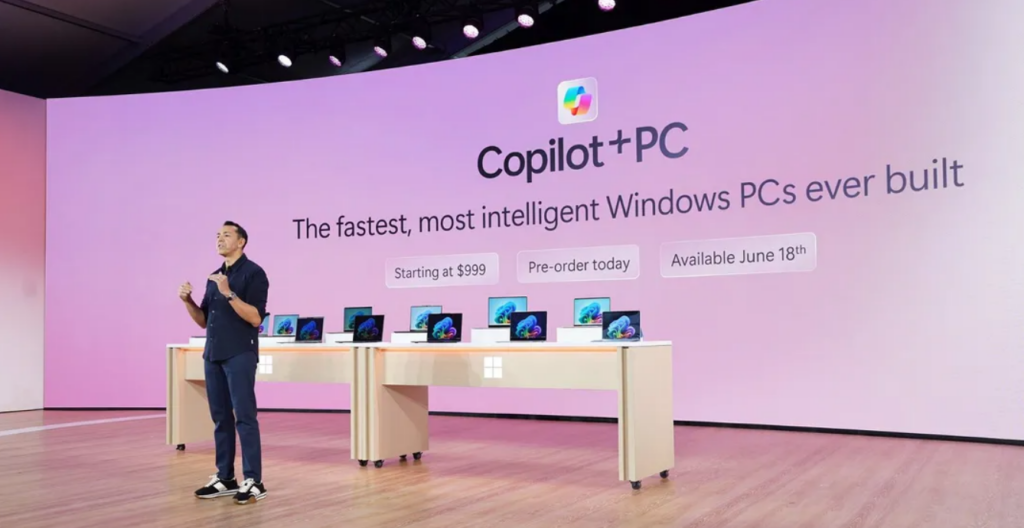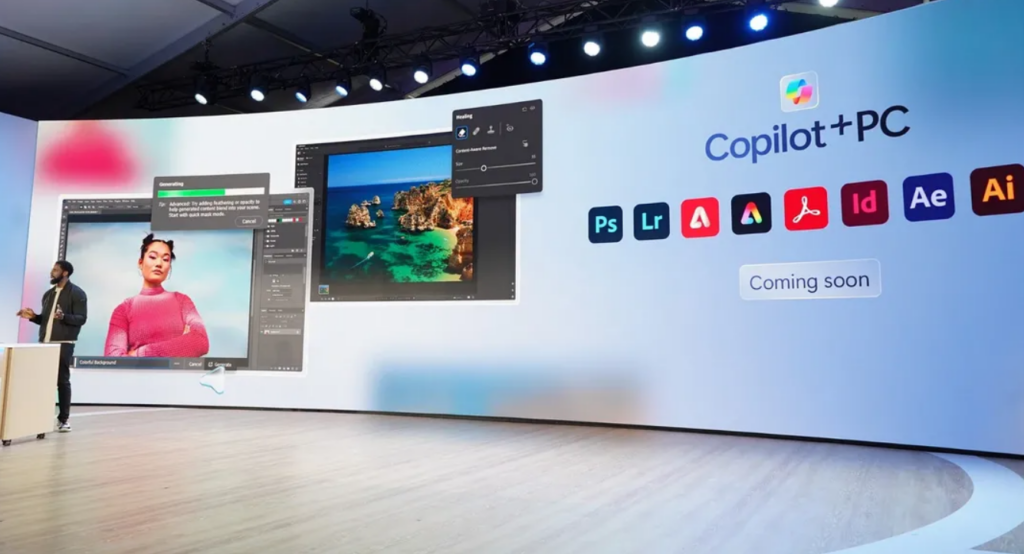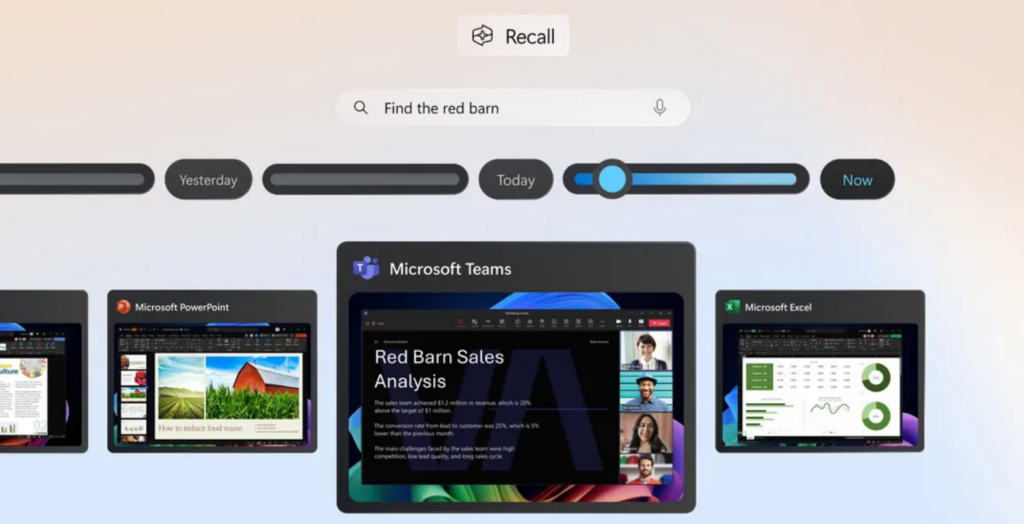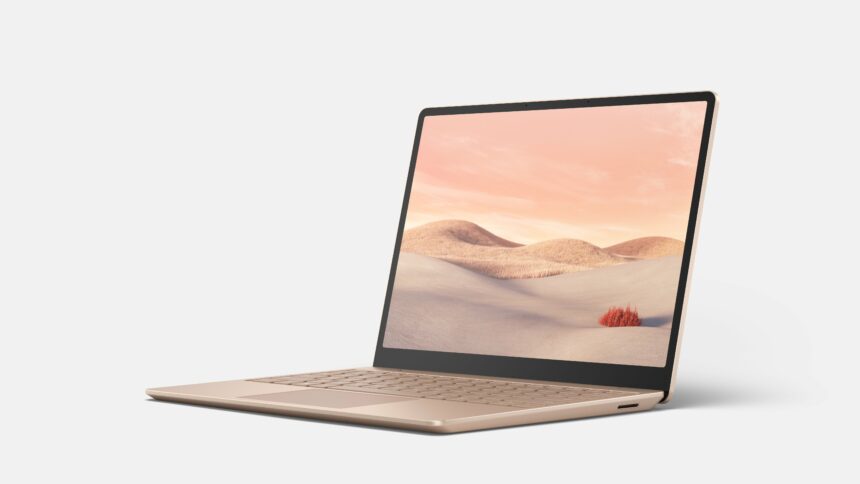Microsoft is confident that it has finally nailed the transition to Arm chips. This confidence was on full display recently when the company spent an entire day pitting its new hardware against the MacBook Air at its headquarters in Redmond, Washington. The new Surface devices, equipped with Qualcomm’s Snapdragon X Elite chips, were showcased in a series of demos and benchmarks, directly comparing them to Apple’s category-leading laptop.
Performance and benchmarks
Benchmark tests usually aren’t that exciting, but this time they carried significant stakes. Historically, the MacBook Air has outperformed Arm-powered PC chips and even Intel-based ones. However, in these tests, the new Surface devices consistently pulled ahead. This performance led Microsoft to believe that it is now in a position to conquer the laptop market.

Copilot Plus PCs
Over the past two years, Microsoft has worked secretly with its top laptop partners to develop a selection of Arm-powered Windows machines. These machines, known as Copilot Plus PCs, are set to hit the market this summer. They promise to usher in a generation of powerful, battery-efficient Windows laptops and lay the groundwork for an AI-powered future.
Yusuf Mehdi, Executive Vice President and Consumer Chief Marketing Officer at Microsoft, stated, “You’re going to have the most powerful PC ever. In fact, it’s going to outperform any device out there, including a MacBook Air with an M3 processor, by over 50 per cent on sustained performance.”
Compatibility and emulation
One of the significant advancements in these new Surface devices is an improved emulator called Prism. Microsoft claims Prism is as efficient as Apple’s Rosetta 2 translation layer and can emulate apps twice as fast as previous Windows on Arm devices. This efficiency is crucial as it allows non-native apps to run smoothly on the new hardware.
According to Pavan Davuluri, Windows and Surface Chief, “For apps that are not yet native, we’re now able to take advantage of Prism’s capabilities and solve this with the better energy, platform, and performance efficiency of the emulator.”

Fortunately for Microsoft, many of the biggest apps now natively support Arm chips, including Photoshop, Dropbox, Zoom, Spotify, and major entertainment apps like Prime and Hulu. Additionally, many browser makers are moving to ARM64, with native versions of Chrome, Opera, Firefox, Vivaldi, Brave, and Microsoft Edge already available.
Microsoft believes that 87 per cent of total app minutes on Copilot Plus PCs will be inside native apps, with the Prism emulator helping to bridge the gap for the remaining 13 per cent.
Battery life
Battery life is another area where the new Surface devices excel. In tests simulating web browsing, the new Surface Copilot Plus PC lasted 16 hours and 56 minutes, compared to 8 hours and 38 minutes on the Intel-based Surface Laptop 5 and 15 hours and 25 minutes on a 15-inch MacBook Air M3. In video playback tests, the new Surface device reached over 20 hours, compared to 17 hours and 45 minutes on the MacBook Air M3 and 12 hours and 30 minutes on the Surface Laptop 5.
AI integration
The new Copilot Plus PCs are equipped with a neural processing unit (NPU) from Qualcomm, capable of 45 TOPS (trillions of operations per second) for AI tasks. This allows for more AI task operations per watt than the MacBook Air M3 and Nvidia’s RTX 4060. Microsoft is integrating over 40 AI models directly into Windows on Arm, enabling new experiences for both users and app developers.

One standout feature is the new Recall feature, which allows users to “time travel” back to something they saw or were working on. This is powered by AI models running in the background, cataloguing everything you’re working on. Other AI-powered features include live translations for any video and Auto Super Resolution for upscaling games.
The transition to Arm chips in Windows laptops represents a significant shift for Microsoft. With partners like Acer, Asus, Dell, HP, Lenovo, and Samsung launching new Copilot Plus PCs, the impact could be as monumental as a new Windows release. If the real-world performance matches Microsoft’s claims, these new devices could dramatically alter the landscape of the laptop market.







